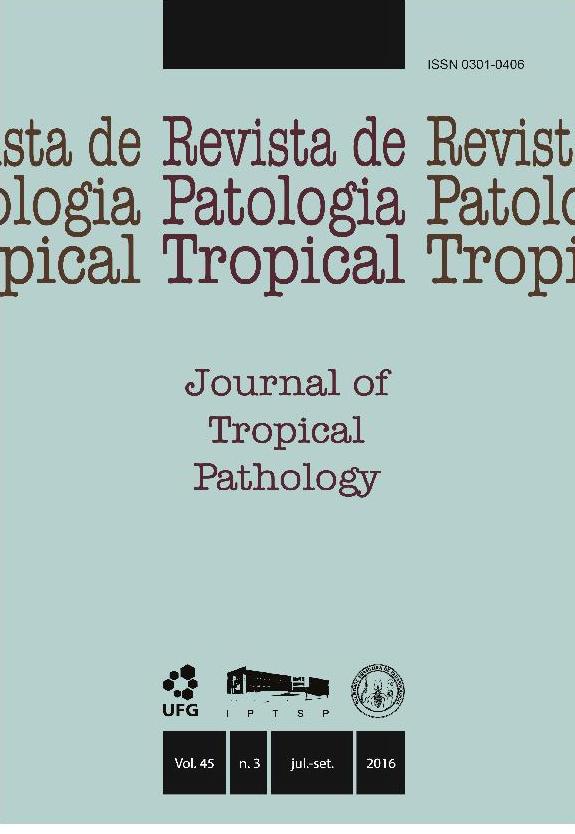EFEITOS DO ÓLEO ESSENCIAL DE THYMUS VULGARIS L. EM CRYPTOCOCCUS NEOFORMANS
DOI:
https://doi.org/10.5216/rpt.v45i3.43515Palavras-chave:
Cryptococcus neoformans, Thymus vulgaris, antifúngicos.Resumo
Cryptococcus neoformans é uma levedura encapsulada encontrada no ambiente, responsável por causar meningoencefalite em pacientes com o sistema imune comprometido. No Brasil, a criptococose é a segunda causa de morte por micoses sistêmicas. A eficácia limitada dos fármacos antifúngicos usados no tratamento desta doença tem estimulado a busca por terapias alternativas como, por exemplo, o uso de plantas medicinais. Thymus vulgaris, popularmente conhecida como tomilho, é uma planta aromática cujo óleo essencial (OE) possui propriedades antifúngicas. Este estudo teve como objetivo avaliar a ação do OE de T. vulgaris em isolados clínicos de C. neoformans. Este óleo, analisado por cromatografia gasosa acoplada à espectrometria de massa (CG/EM), revelou como seus principais compostos: timol, ?-cimeno e linalool. Testes de microdiluição em caldo mostraram a eficácia deste OE contra os isolados fúngicos, com concentrações inibitórias mínimas (CIMs) variando de 32 a 128?g/mL. Testes de interação in vitro ? OE de T. vulgaris e fluconazol (FCZ) ? demonstraram não haver potencialização da atividade antifúngica desse fármaco. Avaliou-se também seu efeito no metabolismo celular fúngico e os resultados mostraram alterações na atividade enzimática mitocondrial apenas em concentrações >1.024?g/mL. Os resultados da ação deste OE em eritrócitos humanos indicaram que ele possui baixa atividade citotóxica em valores de MIC. Ao descrever a ação antifúngica de T. vulgaris, esta pesquisa mostra seu potencial como alternativa para o tratamento contra C. neoformans.
Downloads
Downloads
Publicado
Como Citar
Edição
Seção
Licença
The manuscript submission must be accompanied by a letter signed by all authors stating their full name and email address, confirming that the manuscript or part of it has not been published or is under consideration for publication elsewhere, and agreeing to transfer copyright in all media and formats for Journal of Tropical Pathology.

